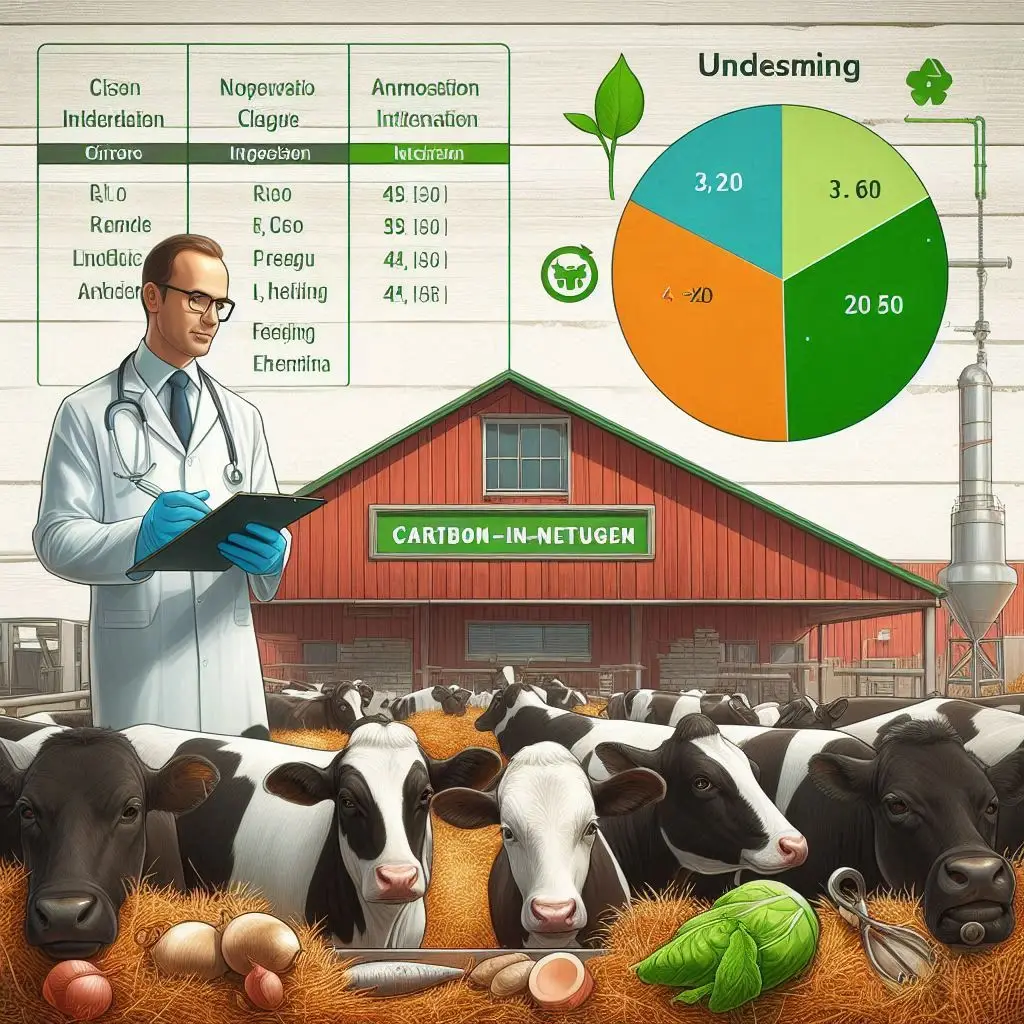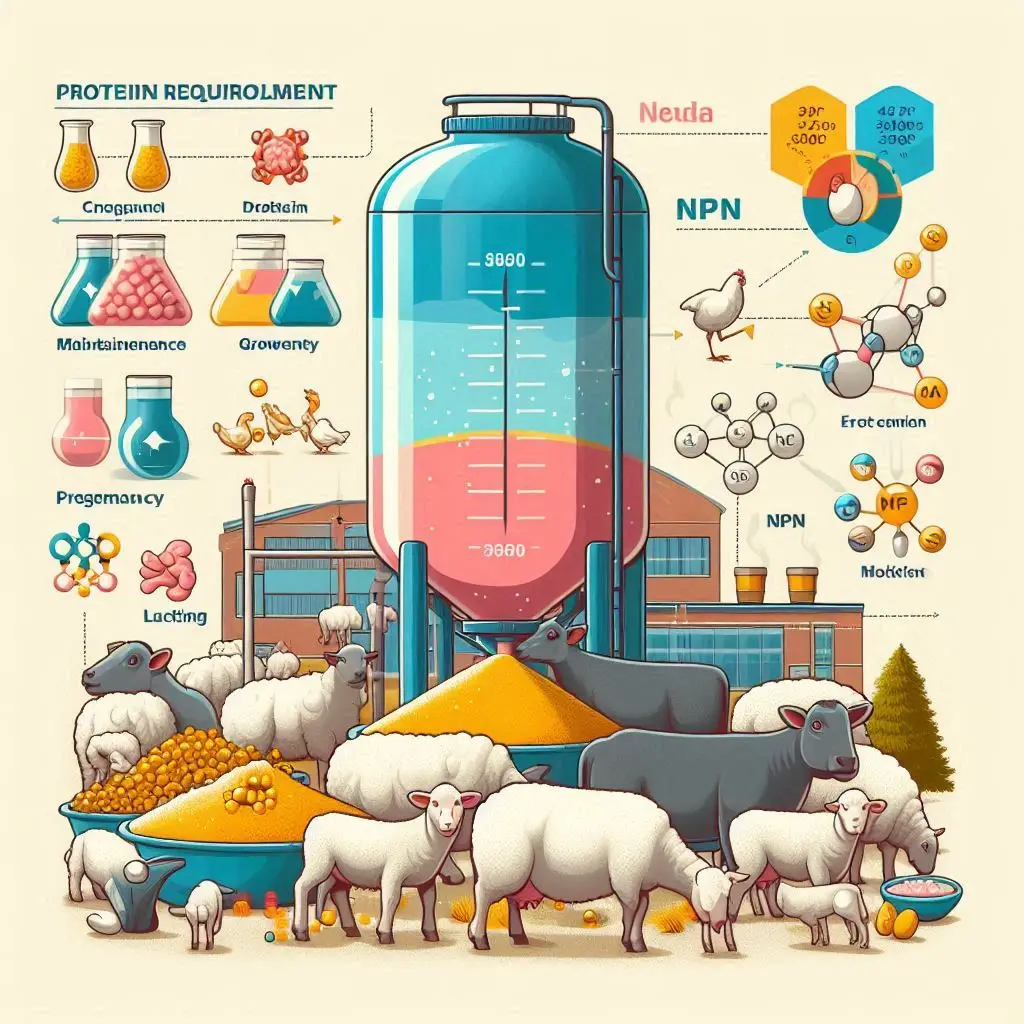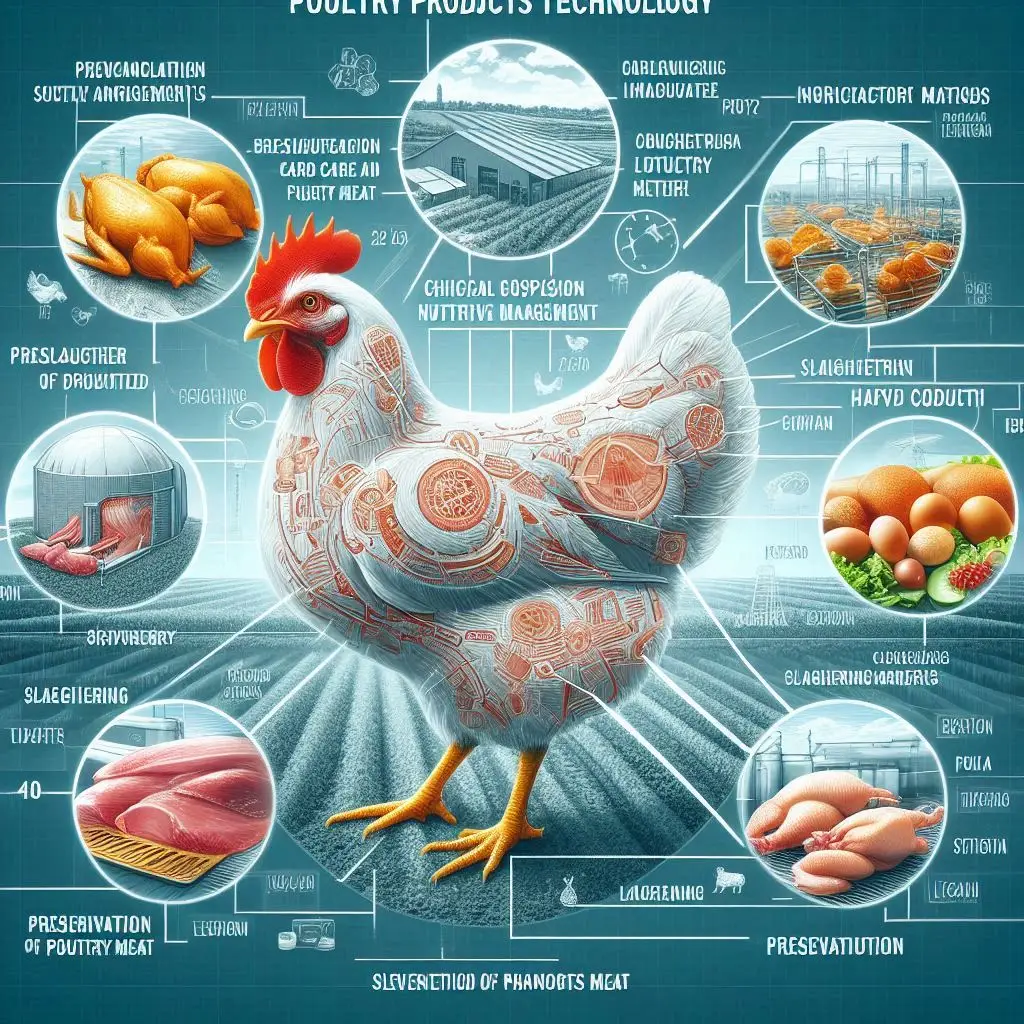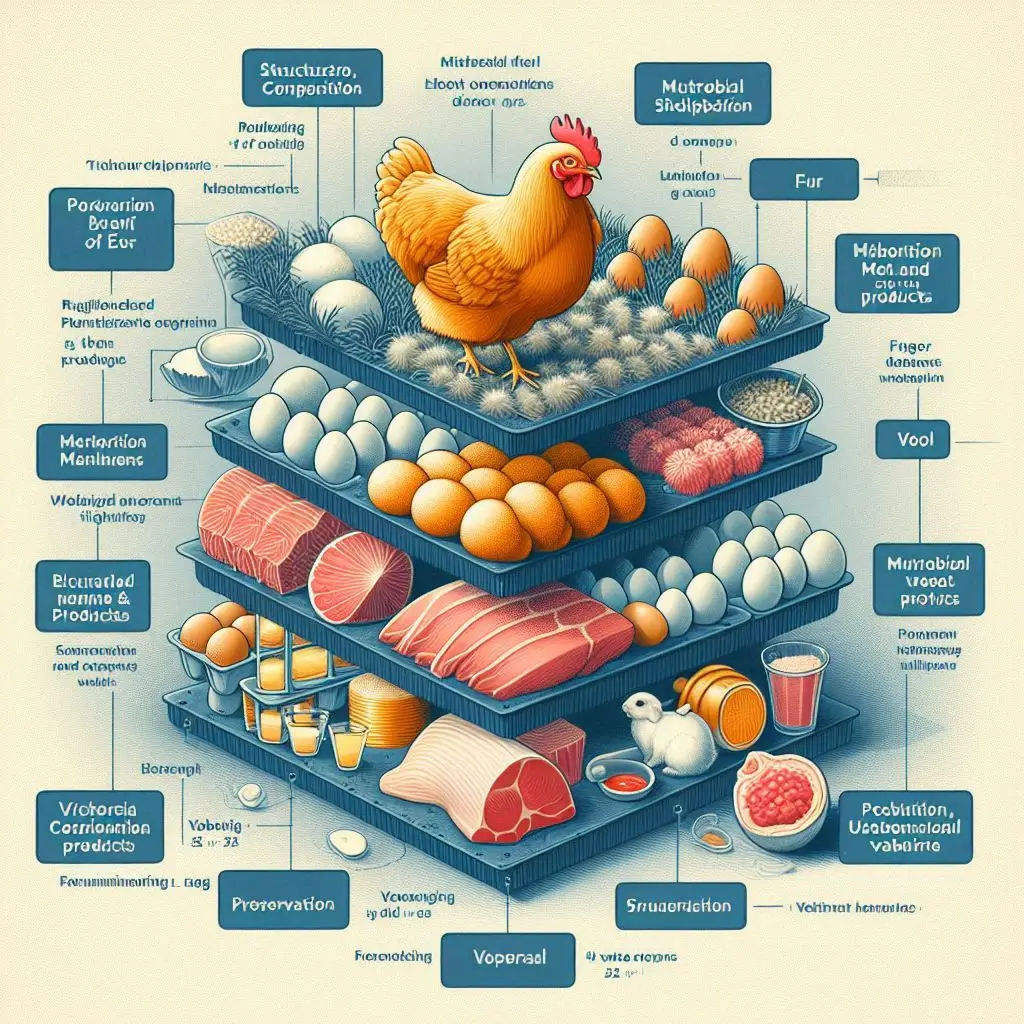Nutrient Requirements for Meat and Egg Production

Introduction
Poultry production, encompassing broilers for meat and layers for eggs, is a rapidly growing industry worldwide. To optimize productivity and profitability, it’s crucial to provide birds with precisely balanced diets that meet their nutrient requirements at each stage of growth and egg production. This article delves into the essential nutrients needed for broilers and layers, as well as strategies for formulating optimal rations.
Nutrient Requirements for Broilers
Broilers, or meat chickens, have high energy and protein needs to support rapid growth and muscle development. The key nutrients required by broilers are:
Energy
- Metabolizable energy: 3200 kcal/kg for 0-8 weeks
Protein and Amino Acids
- Crude protein: 23% for 0-3 weeks, 20% for 3-6 weeks, 18% for 6-8 weeks
Essential amino acids like lysine, methionine, threonine, tryptophan, etc.
Fatty Acids
- Linoleic acid: 1% of the diet
Minerals
- Calcium: 1% for 0-3 weeks, 0.9% for 3-6 weeks, 0.8% for 6-8 weeks
Non-phytate phosphorus: 0.45% for 0-3 weeks, 0.35% for 3-6 weeks, 0.3% for 6-8 weeks Broiler diets are typically divided into three phases: starter (0-3 weeks), grower (3-6 weeks), and finisher (6-8 weeks). The protein and amino acid levels are gradually reduced while maintaining high energy density throughout. Precise amino acid balancing, especially of lysine and methionine, is critical for optimal growth and feed efficiency.
Nutrient Requirements for Laying Hens
Laying hens have very high protein, amino acid, energy, and mineral requirements to support egg production. Their key nutrient needs are:
Energy
- Metabolizable energy: 2900 kcal/kg
Protein and Amino Acids
- Crude protein: 15-17%
Lysine: 0.69-0.85%Methionine + cysteine: 0.58-0.9%
Minerals
- Calcium: 2-3.4%
Available phosphorus: 0.25-0.41% Calcium is especially critical for egg shell formation, with requirements increasing sharply as birds begin laying. Phosphorus, as well as vitamins like D3, are also important for shell quality.
Ration Formulation Strategies
Broiler Starter (0-3 weeks)
- High energy and protein diet
- 23% crude protein, 3200 kcal/kg ME
- Supplemental amino acids like lysine and methionine
Broiler Grower (3-6 weeks)
- Slightly lower protein, same energy
- 20% crude protein, 3200 kcal/kg ME
- Balanced amino acids
Broiler Finisher (6-8 weeks)
- Lower protein, same energy
- 18% crude protein, 3200 kcal/kg ME
- Reduce amino acid supplementation
Layer Developer (12-22 weeks)
- Moderate protein, lower energy
- 15-16% crude protein, 1260-1280 kcal/kg ME
- Adequate calcium and phosphorus for skeletal development
Layer (> 22 weeks)
- Lower protein, higher energy and minerals
- 14-16% crude protein, 1225-1300 kcal/kg ME
3-3.4% calcium, 0.34-0.41% available phosphorus
- Balanced amino acids, especially methionine and lysine
The exact ration formulation depends on the specific breed, age, production goals, feed ingredients available, and cost. But the general principles are to provide the right balance of energy, protein, amino acids, minerals and vitamins for each class of poultry to optimize growth, feed efficiency and productivity.
Role of Trace Minerals
In addition to the major nutrients, trace minerals play a critical role in poultry health and productivity. Some key functions of trace minerals include:
- Iron (Fe): Oxygen transport, energy metabolism
Zinc (Zn): Immune function, skin and feather developmentManganese (Mn): Bone development, antioxidant functionCopper (Cu): Red blood cell maturation, melanin productionSelenium (Se): Antioxidant protection, thyroid function Organic forms of trace minerals may be more bioavailable and have greater effects on egg quality compared to inorganic sources. Optimal trace mineral nutrition helps maximize growth, feed efficiency, egg production and shell quality in poultry.
Conclusion
Precise nutrition is essential for profitable broiler and layer production. By formulating diets that meet the specific nutrient requirements at each stage, poultry producers can optimize growth, feed efficiency, egg production and egg quality. Key considerations include energy density, amino acid balance, calcium and phosphorus levels, and trace mineral fortification. Ongoing research continues to refine our understanding of poultry nutritional needs to further improve productivity and sustainability of the poultry industry.
For more pearls of Vets Wisdom:






Responses